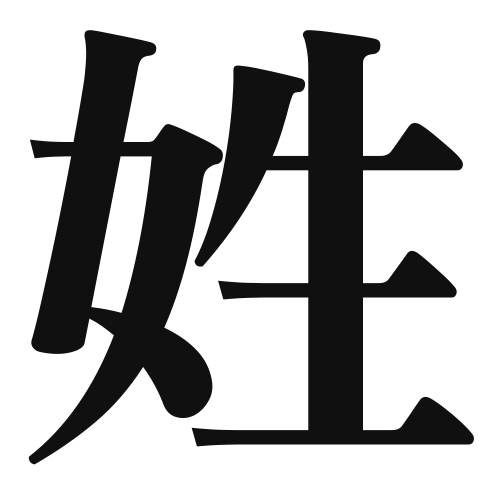1. Overview of Meaning
The kanji “姓” (sei) means “surname” or “family name” in Japanese. It is used to refer to a person’s last name, which is an important aspect of identity in many cultures, including Japan.
2. Formation and Radical
The kanji “姓” is composed of two parts: the radical “女” (woman) and the phonetic component “生” (life). This combination suggests a connection to lineage and family, as surnames are often passed down through generations.
The radical “女” indicates a relationship to women, which historically ties to the family structure and the role of women in lineage.
3. Examples of Usage
Common words and phrases that include “姓” are:
- 姓 (sei) – surname
- 姓氏 (seishi) – family name
Example sentences in daily conversation:
- 私の姓は田中です。 (Watashi no sei wa Tanaka desu.) – My surname is Tanaka.
- 彼女の姓は何ですか? (Kanojo no sei wa nan desu ka?) – What is her surname?
4. Synonyms and Antonyms
Similar kanji with related meanings include:
- 名 (na) – first name; this refers to a person’s given name, which is different from the surname.
Antonyms include:
- 無姓 (musei) – without a surname; this term refers to someone who does not have a family name.
5. Cultural and Historical Background
The concept of surnames is deeply rooted in Japanese culture, where family lineage and heritage are highly valued. Surnames often reflect geographical origins, occupations, or characteristics of ancestors.
Proverbs and idioms related to surnames include:
- 「姓は名に従う」 (Sei wa na ni shitagau) – “The surname follows the name,” emphasizing the importance of one’s identity and reputation.
